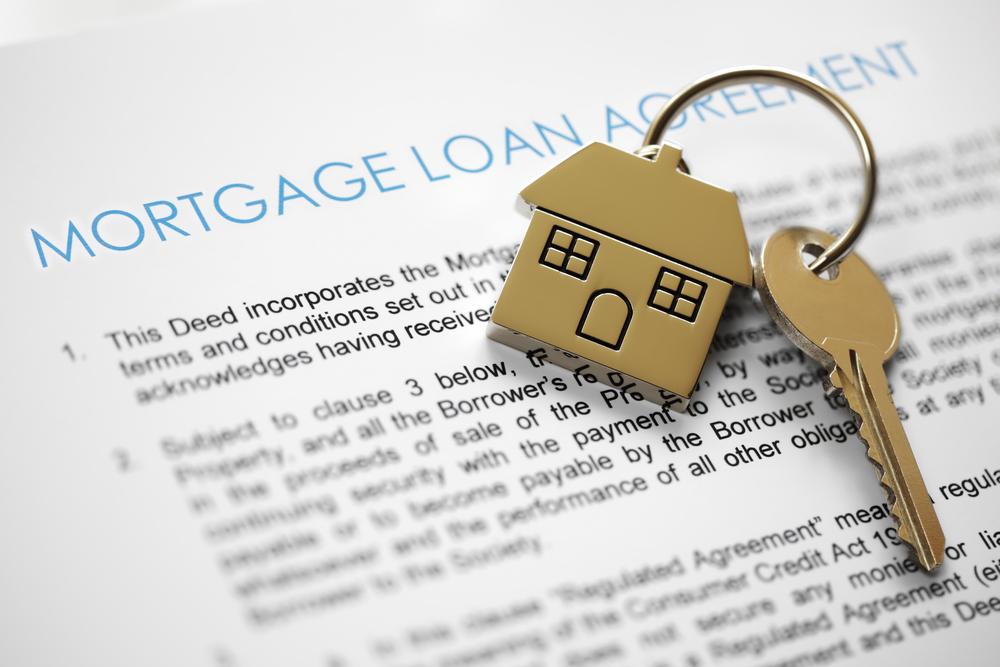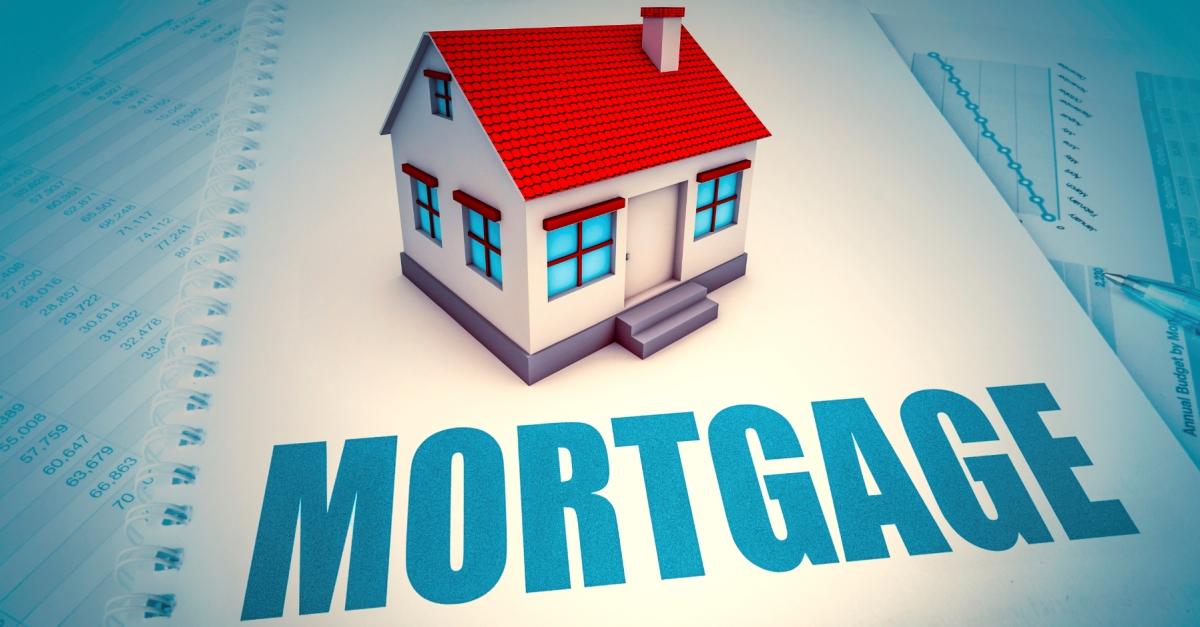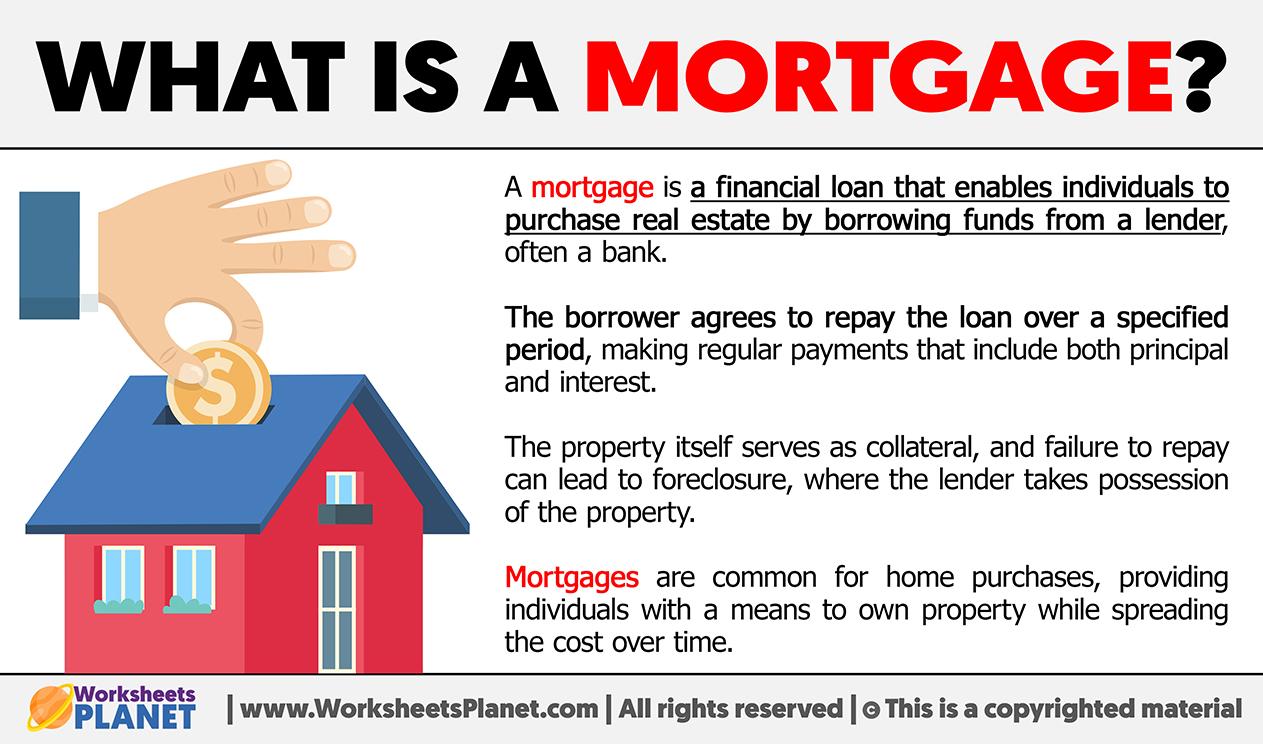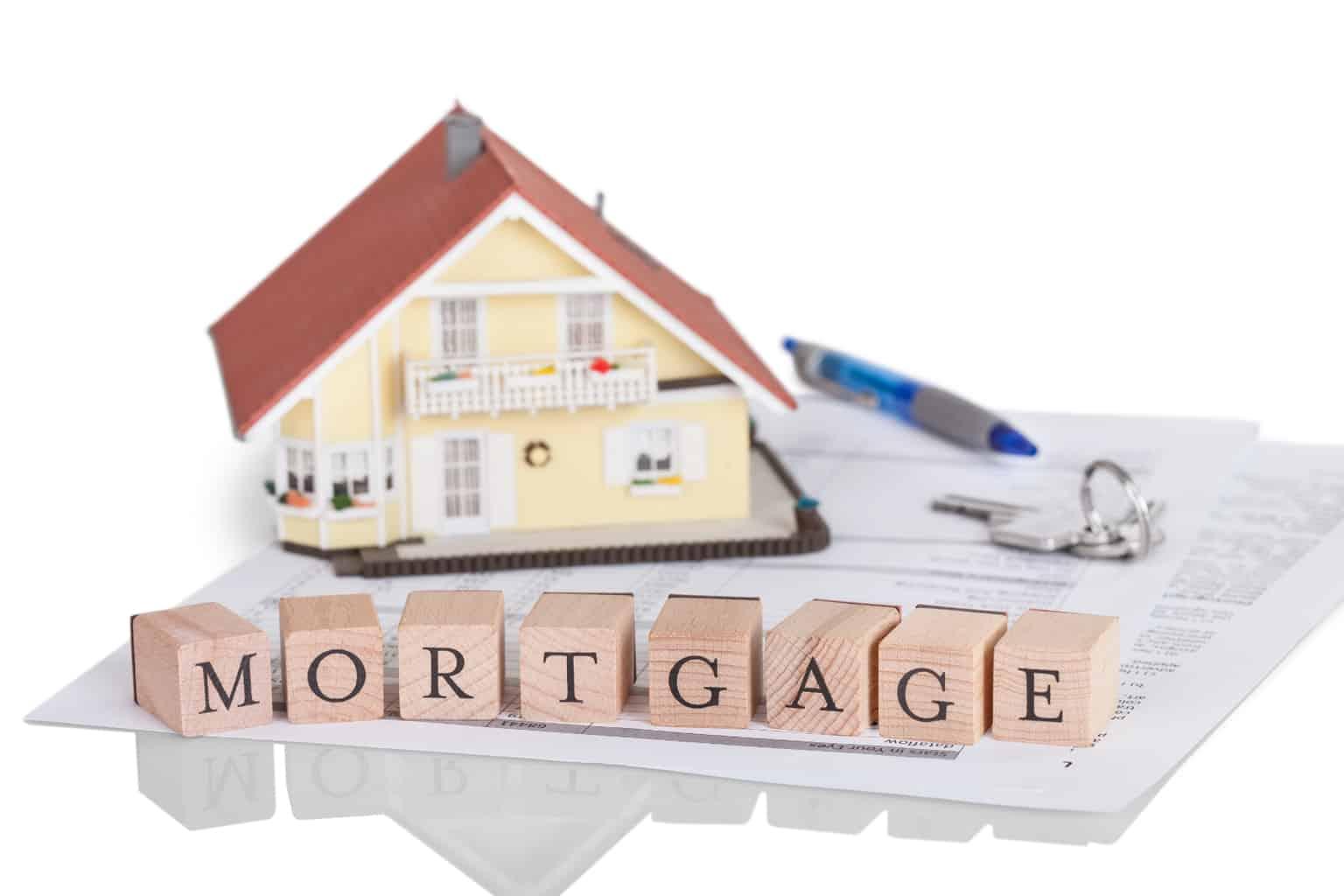Embarking on the journey to homeownership is nothing short of an epic adventure. In a landscape filled with financial peaks and valleys, understanding the intricacies of home loans is akin to possessing a navigational compass, steering you toward your personal haven. Whether you’re a first-time buyer, crafting a tentative path through the mysterious world of real estate, or a savvy investor looking to expand your portfolio, knowing your mortgage options is like choosing the right gear for an expedition. So, buckle up and let this guide illuminate the various pathways, as we explore together the diverse terrain of mortgages to discover which home loan not only fits your current needs but also aligns with your future aspirations. Welcome to “Complete Guide to Mortgages: What Type of Home Loan Is Best for You?”—where your journey to finding the perfect mortgage begins.
Table of Contents
- Understanding Your Mortgage Options: A Closer Look at Types of Home Loans
- Deciphering Your Financial Landscape: Choosing the Right Mortgage Based on Your Economic Status
- Navigating Interest Rates and Terms: Insights and Recommendations for Long-Term Benefits
- In Retrospect

Understanding Your Mortgage Options: A Closer Look at Types of Home Loans
The maze of mortgage options available to prospective homeowners can be downright bewildering. From fixed-rate loans to more complex adjustable-rate setups, understanding the nuances of each can help you make an informed decision that aligns with your financial landscape and long-term goals. Here’s a closer look at the primary types of home loans you’re likely to encounter.
Fixed-Rate Mortgages (FRMs) are among the most popular forms of home financing. As the name suggests, the interest rate on an FRM remains constant throughout the term of the loan — typically 15, 20, or 30 years. This stability makes budget planning much simpler, as your monthly payments won’t change over time.
Adjustable-Rate Mortgages (ARMs), on the other hand, have interest rates that can fluctuate. This means monthly payments can go up or down depending on the state of the market. Typically, ARMs start with a lower rate than FRMs, which can be attractive to borrowers planning a shorter stay in their home.
Interest-Only Mortgages are a bit of a niche option but can be beneficial under the right circumstances. For a set period at the start of the loan, you pay only the interest on the mortgage, which reduces your monthly expenses initially. However, after the interest-only period expires, you begin paying off the principal, which results in higher monthly payments thereafter.
Government-Insured Loans are designed to assist specific populations in owning a home. These include FHA loans backed by the Federal Housing Administration, VA loans for veterans and active military, and USDA loans for rural properties. Each offers unique benefits, such as lower down payments or subsidized interest rates.
For those interested specifically in FHA, VA, or USDA loans, below is a simple breakdown:
| Type | Target Group | Benefits |
|---|---|---|
| FHA | Low-to-moderate income buyers | Low down payments, Flexible credit requirements |
| VA | Veterans, Military Service Members | No down payment, No private mortgage insurance |
| USDA | Rural and Suburban Homebuyers | No down payment, Lower interest rates |
Combination or Hybrid ARMs involve an initially fixed interest rate for a specific period, after which the loan shifts to an adjustable rate. This arrangement can offer an initial period of stability followed by variable rates tied to market conditions.
When weighing these options, consider factors such as your financial stability, expected income over the years, and whether you anticipate moving or refinancing in the future. Each type of mortgage has its merits, but the best choice depends on your personal situation and financial goals.
Consulting with a mortgage advisor might also help clarify which type of loan is suited to your circumstances. the right home loan should provide comfort not just in terms of housing but also in financial predictability and security.

Deciphering Your Financial Landscape: Choosing the Right Mortgage Based on Your Economic Status
Embarking on the journey of homeownership requires an understanding of how your financial circumstances shape the choices you make about mortgages. Each type of mortgage caters to different economic situations, providing unique advantages and limitations. Here’s a breakdown to help you navigate through the often-complex landscape of home loans.
Fixed-Rate Mortgages: These are the quintessential choice for individuals seeking stability. If you prefer predictable payments throughout the life of your loan, this could be an ideal choice. Your interest rate remains the same, which means no surprises on your monthly bills, regardless of the market fluctuations.
Adjustable-Rate Mortgages (ARMs): ARMs are particularly appealing if you anticipate a rise in your income or plan to move within a few years. Initially, you’ll enjoy lower interest rates compared to fixed-rate mortgages, which means lower monthly payments. However, this rate can change based on market trends, which can either increase or decrease your monthly expenses over time.
Interest-Only Mortgages: Tailored for high earners who experience significant fluctuations in their income, such as those on commission or freelancers. This type allows borrowers to pay just the interest for a certain period, resulting in lower initial payments. However, since you’re not paying down the principal during this period, expect larger payments once this phase ends.
- Government-Insured Loans: These are designed for specific demographics:
- FHA loans: Great for first-time buyers with lower credit scores or smaller down payments. They require mortgage insurance but offer lower down payment requirements.
- VA loans: Tailored for veterans, these offer competitive rates and terms, often requiring no down payment or private mortgage insurance.
- USDA loans: Aimed at buyers in rural areas, enabling 100% financing for those who meet income criteria.
Conventional Loans: These are not insured by the federal government and are suitable for borrowers with good to excellent credit scores. They can have higher down payments, but typically offer more flexibility in terms of loan terms and rates.
| Mortgage Type | Typical Interest Rate | Suitable For |
|---|---|---|
| Fixed-Rate | Higher | Stability seekers |
| ARM | Lower initially | Short-term homeowners |
| Interest-Only | Varies | High earners with income swings |
| FHA | Lower | First-time homebuyers |
Choosing the right mortgage involves careful consideration of your financial stability, career prospects, and personal circumstances. It’s advisable to use mortgage calculators or consult with a financial advisor to understand how different mortgage options will play out over time.
Ultimately, the correct decision aligns your economic reality with your long-term housing needs, ensuring that your dream home is a source of comfort, not stress. Consider the investment of owning a home not just as a financial decision, but as a step towards achieving your personal and financial goals.

Navigating Interest Rates and Terms: Insights and Recommendations for Long-Term Benefits
Understanding interest rates and their terms is akin to mastering the commander’s helm on your financial ship through the tempest of real estate investment. The right knowledge can help you steer through these waters, ensuring you glean substantial long-term savings and benefits from your chosen mortgage type. Here, we delve into crucial insights and recommendations that will empower you to make informed, beneficial choices.
Interest rates can significantly impact the total amount you pay for your home. They can vary based on the mortgage type, loan term, and your financial health. Hence, a comprehensive approach to understanding these rates is essential:
- Fixed-rate Mortgages: These loans maintain the same interest rate over the life of the loan, providing predictable monthly payments and stability against interest rate increases. They are ideal if you plan on staying in your home for many years.
- Adjustable-rate Mortgages (ARMs): Initially offering lower rates, ARMs adjust based on market trends after a set period. They’re suitable for those expecting future income growth or short-term residency in their home.
Next, let’s examine how the loan term can influence your decision:
- Short-term Loans: Generally spanning 10-15 years, these loans often have higher monthly payments but lower total interest costs, making them attractive if you can afford the higher outlay.
- Long-term Loans: Extending to 30 years or more, these loans offer lower monthly payments, spreading out the interest costs but increasing them over time.
Consider the broader economic context too. In periods of low interest rates, locking in a fixed-rate mortgage might seem more appealing, whereas, during high-rate periods, an ARM could start off cheaper if you predict rates will drop in the future.
| Type of Mortgage | Pros | Cons |
|---|---|---|
| Fixed-rate | Stable payments | Higher initial rates |
| Adjustable-rate | Lower initial payments | Potential rate increases |
To truly benefit in the long run, integrating the understanding of these components into your mortgage strategy is crucial:
- Assess your financial stability and forecast future income.
- Understand how long you plan to stay in your home.
- Keep an eye on economic trends and forecasts for interest rates.
- Consult with mortgage professionals who can offer tailored advice based on your financial scenario.
remember that the right mortgage for someone else may not be the right one for you. Personal circumstances, the economic climate, and individual long-term goals all play critical roles in determining the most beneficial mortgage type. By staying informed and considering these elements carefully, you can achieve the most advantageous setup for your home investment.
your approach to navigating interest rates and understanding the terms of your mortgage can have profound effects on your financial well-being. Invest time in learning about these important aspects, and consider professional guidance to tailor a strategy that aligns with your personal and financial goals.
In Retrospect
As we close the chapter on our comprehensive journey through the myriad landscapes of mortgages, remember that choosing the right home loan is as much an art as it is a science. Whether you’re drawn to the stability of a traditional fixed-rate mortgage, the initial generosity of an adjustable-rate loan, or the tailored specifics of government-backed options depends largely on your personal circumstances, aspirations, and financial tapestry.
Crafting the perfect financing mosaic for your homebuying adventure is no small task, and it’s crucial to arm yourself with knowledge, seek advice, and consider your long-term goals. After all, choosing a mortgage is not just about finding a place to hang your hat—it’s about laying the foundation for your future.
As you step out with the insights from our guide, think of yourself as both a cartographer and a captain, navigating through the currents of interest rates, loan terms, and market conditions, charting a course to your own front door. Your ideal home loan is out there; take this knowledge, mixed with a dash of perseverance and foresight, and embark on your quest to find it. Here’s to finding your perfect fit—one that not only gets you the keys to your new home but does so while fitting snugly into your financial blueprint. Safe travels on your mortgage journey!
